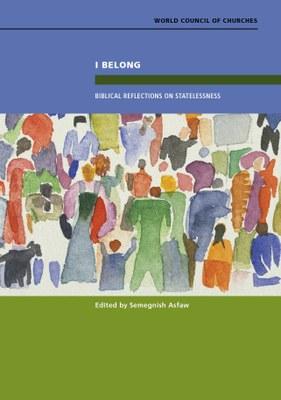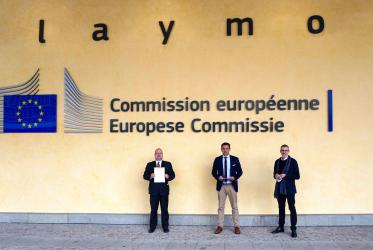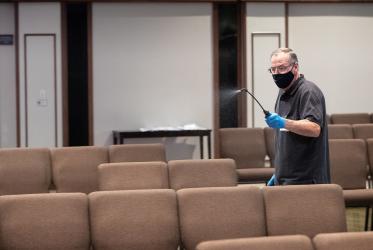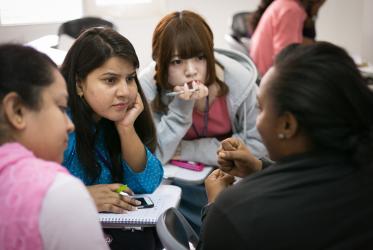Displaying 21 - 40 of 60
Biblical Reflections on Statelessness
12 October 2020
Ecumenical statement on migration received by European Commission
25 September 2020
Bible study addresses church identity in pandemic
17 September 2020
Freedom of religion rooted in justice
06 March 2020
WCC general secretary: Iraqi people’s voices must be heard
05 November 2019
Human fraternity is a divine calling, says WCC general secretary
03 February 2019
A moment in ‘Time’: an interreligious vision in Erlangen
20 December 2018
WCC welcomes new staff
06 November 2018
Catholics, WCC map future together after papal visit to Geneva
05 September 2018
Walking together against hatred and violence
26 February 2018
Churches in Norway and Pakistan break new ecumenical ground
26 January 2017















